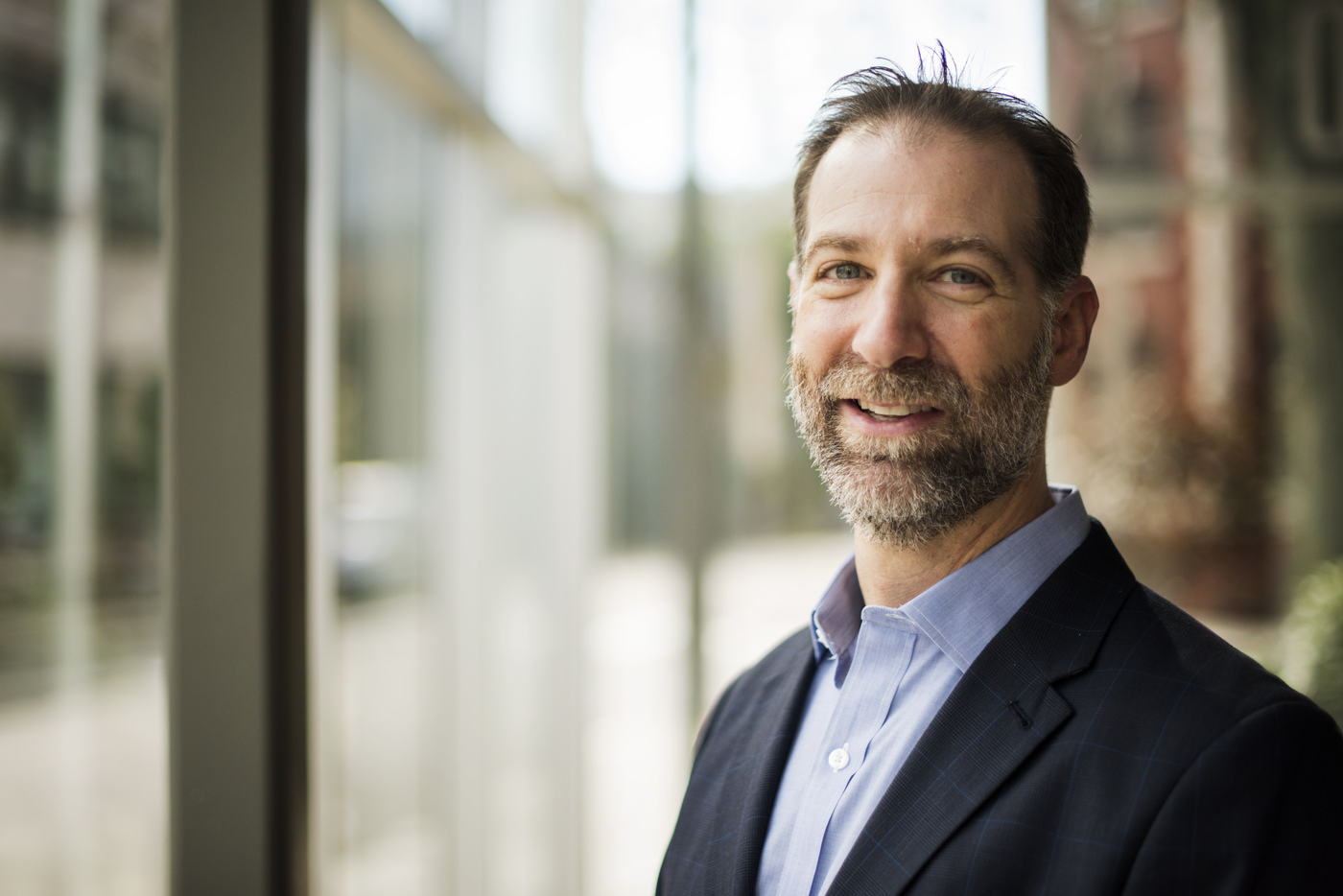by Jason Kornwitz
Chuck Hillman practices what he preaches, applying his research findings to his personal life.
When he’s not studying the relationship between physical activity and cognitive health—with a particular emphasis on how diet, exercise, and body mass affect attention, memory, and processing speed—he’s biking, playing ice hockey, or lifting weights in his home gym.
“My work demonstrates that physical activity benefits people of all ages in terms of brain function, cognition, and scholastic performance,” says Hillman, a newly hired psychology professor who holds joint appointments in the College of Science and the Bouvé College of Health Sciences.
Hillman comes to Northeastern from the University of Illinois, where he still serves as an adjunct professor. He earned his master’s degree in exercise and sport sciences from the University of Florida in 1997 and his doctorate in kinesiology from the University of Maryland in 2000.
Throughout his illustrious career, Hillman has received several prestigious honors for his efforts to better understand the factors that contribute to increased cognitive health in both children and adults. In 2007, for example, he was named one of the Institute for International Sport’s 100 Most Influential Sports Educators. Eight years later, in 2015, he was elected to the National Academy of Kinesiology, becoming just the 550th fellow of the self-described “information leader in physical activity and health.” He currently sits on the Health and Human Services’ Physical Activity Guidelines for Americans Advisory Committee, which includes recommendations for Americans age 6 and over to maintain or improve their health through regular exercise.
He has delivered more than 80 lectures around the world; published more than 140 peer-reviewed journal articles; and received more than $25 million in external funding from the National Institutes of Health, the Nike Foundation, and many other notable agencies.
His ongoing study of how physical activity benefits the adolescent brain—which was funded in part by the NIH’s Eunice Kennedy Shriver National Institute on Child Health and Human Development—shows that kids who run around for at least 70 minutes per day exhibit improved thinking skills compared to those who aren’t as active. Another study—for which he is a co-investigator of a five-year, $21 million grant from the NIH’s National Institute of Aging—seeks to uncover the relationship between physical activity and brain health in older adults.
“If you develop an interest in physical activity during childhood,” says Hillman, whose findings have routinely been cited by policymakers and school administrators, “then you’ll be more likely to preserve those habits through adulthood when your life gets busier.”
Hillman chose Northeastern for its focus on interdisciplinary research and collaboration. He is particularly interested in working with professors in the College of Engineering to harness the power of wearable fitness trackers and connecting with his peers in the College of Arts, Media and Design to tap into the possibilities of virtual reality.
The goal of his lab—which he envisions as a hub for the study of cognitive neuroscience—is to build an interdisciplinary environment “where both students and faculty can work together to develop science that supports cognitive and brain health across the life span.” He can’t wait to get started: “We have a very strong psychology program here,” he says, “and the quality of our students is above and beyond what I had expected.”
Originally published in news@Northeastern on October 12, 2016.

